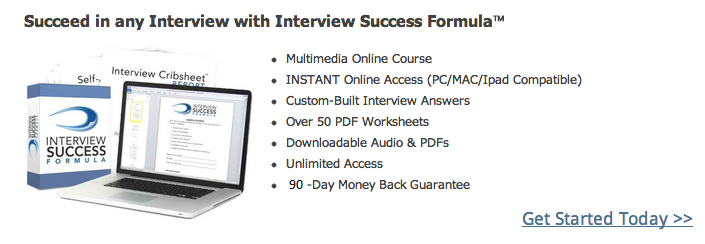 A select group know it. The rest of us are captivated by their secrets. They know how to sway their listeners, persuade the undecided and win over the opposition. They know how to use it in a conference room. They know what to say in an interview.
A select group know it. The rest of us are captivated by their secrets. They know how to sway their listeners, persuade the undecided and win over the opposition. They know how to use it in a conference room. They know what to say in an interview.
Scientists wanted the answers for how these talented masters of charm always seem to get their way. Now, after 60 years of experiments and studies, I will share some key results of that research, which you can apply in your next job interview.
Here are six tenants of influence:
Liking
Have you ever heard of the Tupperware party? A friend hosts her nearest and dearest for an evening of cocktails, conversation, and plastic storage containers. Yet people buy these containers, not because they need the Tupperware, but because they like the person selling it.
Just like at a Tupperware party, people who like you will help you. The job interview is no exception. So how do you get your interviewer to like you?
The first one is similarity. People with similar beliefs actually stand closer together in a conversation than those with differing opinions. Similarity can extend to anything from similar hobbies to growing up in the same place to being fans of the same sports teams. A friend of mine quickly won over a recruiter by mentioning they went to rivaling high schools and poking fun at that rivalry. The rivalry was the similarity.
The second one is praise. Giving praise can disarm your interviewer. Praise is also pretty easy to do. If you do research on your interviewer ahead of time, you can praise any of his work that you were impressed by. You can also ask the interviewer about his professional experiences in person, and provide complimentary feedback for any accomplishments that impress you. Just make sure the praise is sincere. The interviewer will know if it’s fake.
Reciprocity
People treat others the way they have been treated. So you should model the behavior that you want projected in your interviewer. If you seem comfortable and open, your interviewer is more likely to act comfortable and open.
Another type of reciprocity is the returning of favors. If you do something nice for someone or give a gift, then the person will want to do something nice for you. While a fruit basket or lavish gift might make an interviewer uncomfortable, there is one type of gift that you can share, an informational gift. For instance, if your interviewer turns out share the same musical taste, you can include with your thank you note a calendar of upcoming musical events she may be interested in.
Social proof
Social psychologist found that people were more likely to donate to a charity when they saw a list of their friends and neighbors on the donation list. People are influenced by the perceptions of those they see as their peers. Do you know any peers of your interviewer who can vouch for your job performance? These peers could provide this proof for you if they give you an introduction to your interviewer or act as references.
Consistency
People like to agree with what they’ve said in the past, especially when they’ve written it down and shared it publicly. To do otherwise, at some level, can feel dishonest. So how do you make the human desire to be consistent work for you?
One classic sales technique is to say at the beginning of a sales meeting, “If I overcome all of your objections, then you would feel comfortable making a purchase today?” The more forward among us may take this approach. What about everyone else?
Help the interviewer to understand how hiring you is consistent with their past decisions, goals or values. For instance, you can say something like, “You said you wanted to do X. If you hire me I can make sure that you are successful with that goal.”
Authority
People trust experts. How can you use expertise to support your arguments and create a more persuasive case? Having the names of the top firms on your resume will help you. You also gain authority by receiving training from experts, having people of authority as mentors, or experience working with top tier clients. Highlight such experiences as examples in your interview answers. In addition, you can build your authority by showing you have extensive experience in an area the organization is currently weak or by speaking knowledgeably on a relevant subject.
Don’t let modesty prevent you from sharing these experiences. Still, be careful of flaunting it (see ‘Liking’ above for more).
Scarcity
People want the stuff that seems hard to get. Think about what makes you a rare commodity, specific skills, training, passion, even your combination of experiences.
You also become a scarce resource when other employers seem highly interested in hiring you. If you have multiple companies interested in hiring you, you can mention it at the end of your interview: “I’m currently speaking with a few other firms, though I know that I would enjoy working for yours. I hope we can move forward with the next steps in this process soon.” Also, if an interviewer asks with what other firms you have had an interview, please don’t say, “I haven’t had another interview in months.”
Another way to use scarcity is known as loss aversion. People value the loss of what they already have far more than the potential benefits getting new things. If an interviewer asks, why you should be hired, you can frame your answer as what she loses by not hiring you. (As a slightly different example, consider how most job seekers will perform worse in their next interview because they missed the training that is exclusively available on this website.)
Putting it all together
You may not be able to use all these tools of influence in your next interview. That’s fine. You can still benefit from what you have learned today. Think about how you apply just one or two of these strategies to build an advantage.


